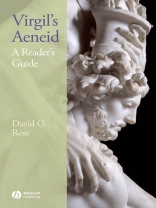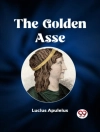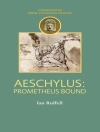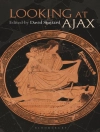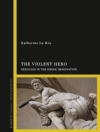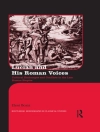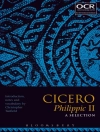Written by eminent scholar David O. Ross, this guide helps readers
to engage with the poetry, thought, and background of
Virgil’s great epic, suggesting both the depth and the beauty
of Virgil’s poetic images and the mental images with which
the Romans lived.
* * Guides readers through the complexity of Virgil’s poetic
style and imagery
* All extracts are translated, with original Latin given when
necessary
* Provides useful historical and social context in which to
understand the poem as it was viewed in its time
* Includes short introductions to important topics such as Roman
religion and the Roman concept of ‘character’
* Features a helpful appendix which clarifies how to read and
hear the poem’s Latin hexameter
Daftar Isi
Preface vii
Introduction 1
1 Virgil’s Hero 11
Three Scenes of Crisis 12
The Hero and Personal Loss 18
The Hero as Warrior (10.510-605) 24
Some Observations on Character 26
2 The Victims 32
Dido 32
Nisus and Euryalus 35
Pallas and Lausus 38
Some Aspects of Turnus 43
Camilla 52
Italy 54
3 Fate and the Gods 61
The Roman Gods 62
The Gods in the Aeneid 67
Fate in the Aeneid 74
4 Virgil’s Troy 77
The Roman Troy 77
The Destruction of Troy (Aeneid, Book II) 82
Other Images of the Destruction of Troy (6.494-547, 1.450-93) 86
Andromache’s Troy Restored (3.294-505) 90
The Trojan Games (5.104-544) 94
The Transformation of Troy (5.485-544) 100
The lusus Troiae (5.545-603) 102
5 Rome, the rerum imago 105
Jupiter’s Revelation (1.254-96) 107
Anchises’ Review (6.756-892) 109
The Shield of Aeneas (8.626-728) 113
6 Virgil, His Life and Works 120
His Life and Times 120
The Eclogues 125
The Georgics 133
Appendix: The Latin Hexameter 143
Word Accent 143
Verse Ictus 144
Accent and Ictus 144
Caesura and Diaeresis 145
The Third-Foot Caesura 145
The First Foot 146
The Hexameter Line 147
The Catullan Molossus 151
General Index 153
Index of Passages 155
Tentang Penulis
David O. Ross is Emeritus Professor of Classics at the University of Michigan. He is author of Style and Tradition in Catullus (1969), Backgrounds to Augustan Poetry: Gallus, Elegy, and Rome (1975), and Virgil’s Elements: Physics and Poetry in the Georgics (1987).
